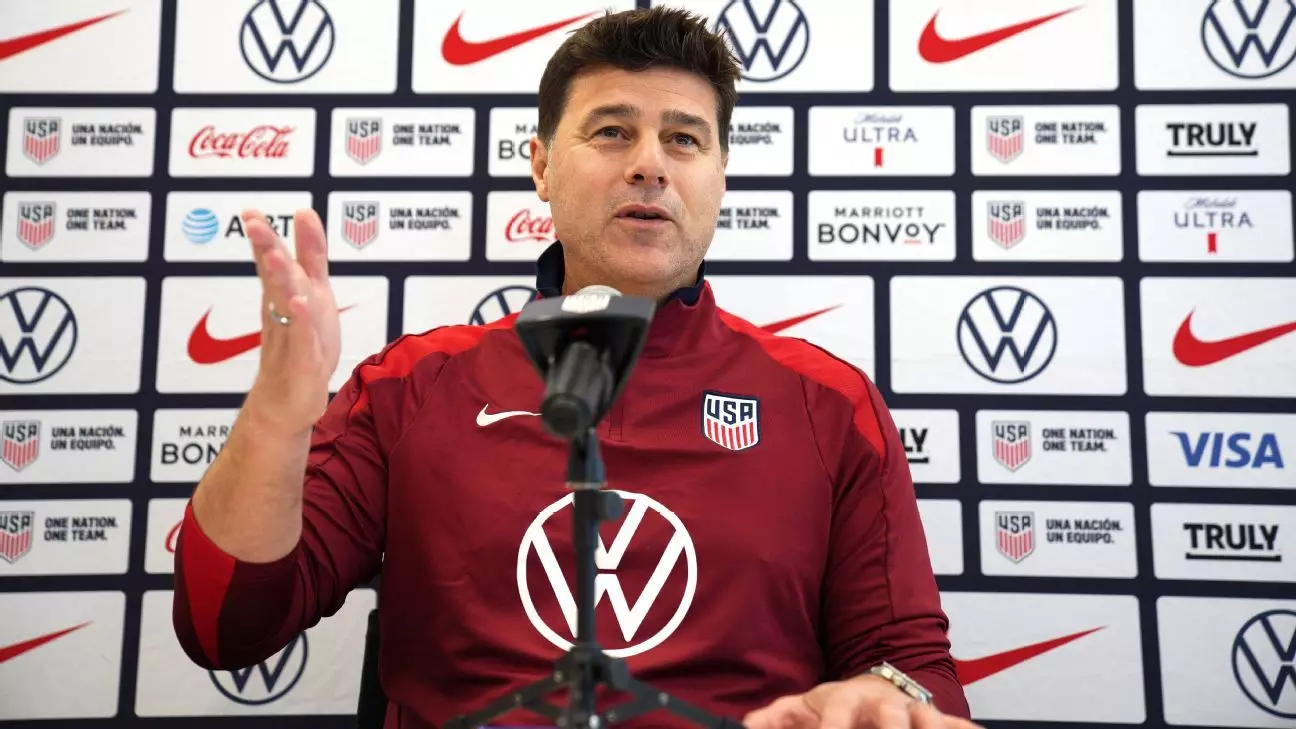In the realm of sports, swift transitions and managing high-caliber athletes are critical success factors for any coach. Mauricio Pochettino, the freshly appointed head coach of the United States men’s national soccer team (USMNT), underscores this reality as he praises star player Christian Pulisic while voicing valid concerns regarding the athlete’s workload during a sensational season with AC Milan.
Christian Pulisic’s remarkable performance with AC Milan has placed him firmly in the spotlight, showcasing the talents that were once muted during his tenure with Chelsea. Thus far in the season, he has netted six goals and contributed two assists in nine appearances. Such statistics have not gone unnoticed; Pochettino describes him as “one of the best offensive players in the world.” Indeed, Pulisic’s form has propelled him into a pivotal role at Milan, reflecting not only a resurgence of his personal capabilities but also a renaissance in his professional journey.
However, Pochettino’s commendation is tempered by apprehension. He expressed concern over Pulisic’s increasing workload and the potential implications on his fitness. With Pulisic starting every match, the coach emphasizes the importance of protecting players so that they can perform at their peak when it matters most. The challenge of balancing a player’s remarkable talent with the physical demands of a grueling season is not easily navigated.
Workload management has become a focal point amid the frenetic pace of modern soccer. Coaches today must grapple with athletes’ physical limitations as much as their skills. Pochettino’s proactive approach is evident in his emphasis on building a strong relationship with the club while simultaneously safeguarding Pulisic’s health. This aspect is imperative; after all, soccer fans expect not just an exciting display of football but also the sustained quality of players they admire.
For players like Pulisic, the narrative of success is often interwoven with moments of struggle. He articulates the ups and downs intrinsic to an attacking player’s career. Recognizing that confidence and rhythm can fluctuate frequently, the self-awareness exhibited by Pulisic demonstrates the mental fortitude required to thrive in competitive sports. This acknowledgment is crucial, as it creates a dialogue about the psychological dimensions of athletic performance that are often overlooked.
Pochettino’s New Era with the USMNT
With his recent appointment, Pochettino faces the dual challenge of fostering team chemistry while instilling a winning mentality ahead of pivotal matches. The coach’s recognition of the importance of understanding one another both on and off the pitch serves as a foundational principle for establishing the desired team dynamics. In the context of international soccer, where players hail from diverse clubs and backgrounds, cultivating solidarity is essential for success.
Pochettino openly expresses the importance of team-based collaboration over rigid adherence to a particular style or philosophy. He humorously acknowledges the need to be adaptable, which will serve him well as he integrates his tactics with the capabilities of his players. This blend of pragmatism and tactical flexibility signifies a refreshing approach, moving away from the dogmatic adherence many coaches espouse.
As Pochettino prepares for friendly matches against competitors like Panama and Mexico, he faces the intricate balance of striving for immediate results while fostering long-term development. The fans’ desire for victory is palpable, yet the coach rightly underscores the need for patience and understanding during this initial stage. The art of coaching is not simply about refining tactical play but also about nurturing players who can rise to their potential.
In this regard, Pochettino’s commitment to a player-centric coaching model is noteworthy. By emphasizing collaboration, he seeks to empower athletes rather than impose rigid structures. The understanding that a coach must adapt their philosophy based on the players’ strengths rather than forcing them into a one-size-fits-all strategy is pivotal for achieving sustained success.
As the USMNT embarks on this new chapter under Pochettino’s guidance, the intertwining of individual talent with strategic management represents a promising horizon. The narrative of Christian Pulisic is emblematic of larger themes in sports: the need to recognize the duality of talent and the strains of professional sports. Pochettino’s awareness of these dynamics positions the team not merely for immediate success but for a deeper, more sustainable path forward. As soccer evolves, so too must the approaches of its stewards, making the balance of winning and nurturing talent an ongoing narrative worth following.

